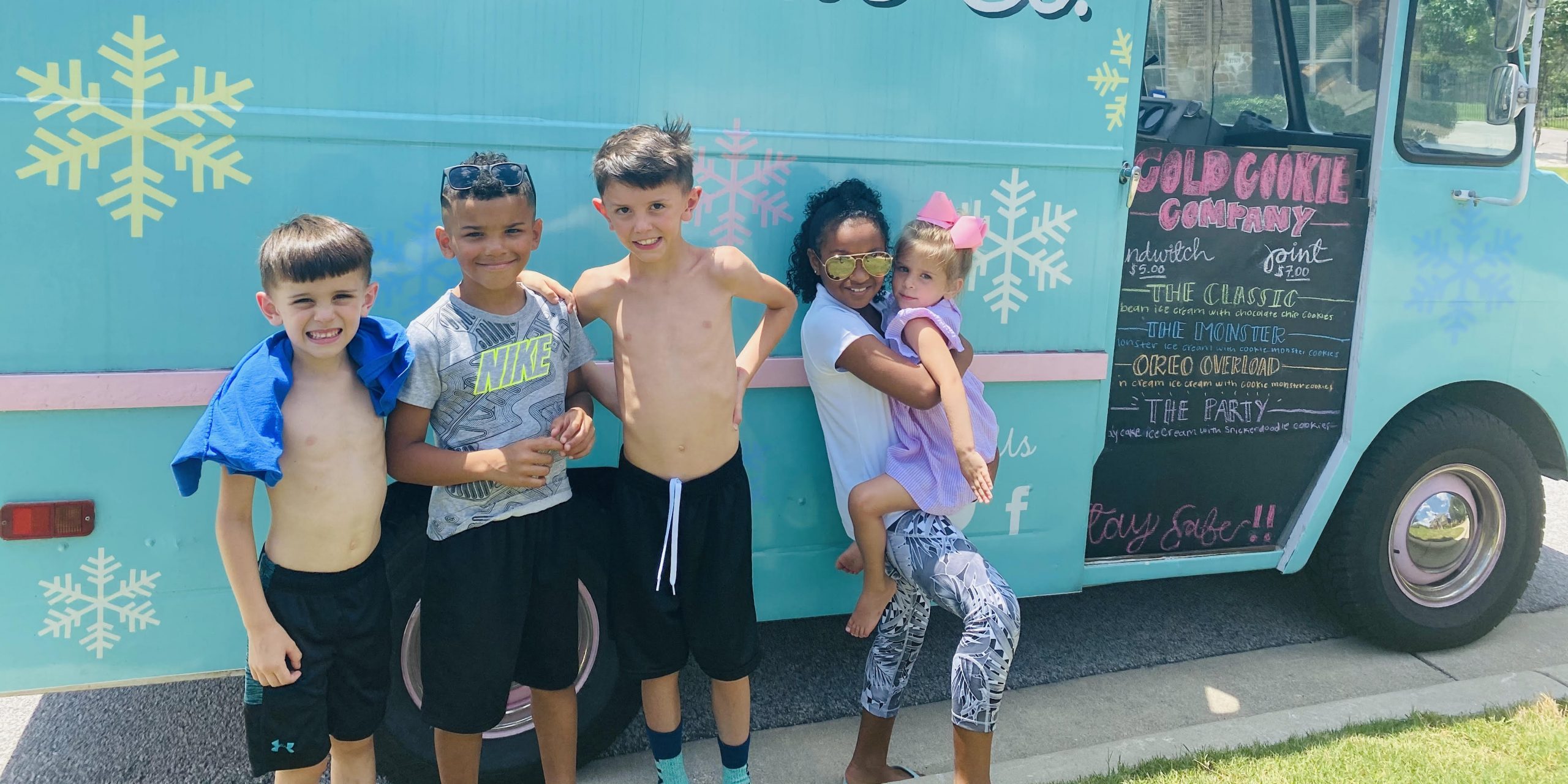When my son was six weeks old, I wrote him a letter for his baby book. “I know that you will grow up to be the kind of person the world needs,” I wrote. “Someone who is loving, fair, and kind to everyone they meet.” I want my kids to be race-conscious, not just kind.
My son is now three and a half, and we welcomed a daughter nine months ago. I still hope that my children grow up to be loving, fair, and kind. But in the past few months, the racial justice movement has made me reevaluate the values I’m teaching my kids. It has spurred me to learn more about race-conscious parenting and how I can raise children who are not just kind, but who understand racism and want to work to dismantle it.
I have a lot to learn, but I have at least learned that teaching kindness alone is not going to create a more equitable and just society.
Telling children to “be nice” to everyone may not equip them to call out racism when they see it. Kindness is not enough; they have to be made aware of racial injustice to have any hope of challenging it.
RELATED READING :: Be the change you want to see in the world, talking to your kids about race
Until recently, my only plan for talking about race was to not teach colorblindness. I would wait until my son pointed out someone who looked different from him, and at that point we would have an open conversation about celebrating differences. I figured I still had some time before that happened, and even more time before we would have to talk explicitly about race.
Now I know that I need to do so much more. One of the first steps I’ve taken to be a race-conscious parent is simply to notice and point out skin color and race, including white, in books, toys, and media.
It’s surprising to me how awkward it feels. I make a point of changing sexist language (e.g. fireman to firefighter) and challenging gender roles when we read books. I don’t feel uncomfortable talking about how families can have two moms or dads. So why is it so hard to talk about skin color and say that a character with brown skin might be a Black person?
It’s hard because I didn’t talk about race a lot growing up. That silence created fear and discomfort, a feeling that race is a taboo subject. I want my kids to feel comfortable talking about race, because if they can’t even talk about it, how will they have any chance of having a diverse group of friends, recognizing racism, and taking a stand against it?
Race-conscious parenting goes beyond just naming race, though. I also have to talk about racial injustice.
We are not all on the same playing field—not everyone gets the same opportunities and treatment because of their race—and policies implemented by white people have created and maintained that uneven playing field.
Some people might say that at ages three and nine months, my kids are too young for these topics.
Or they might ask, “Why bring it up at all? Shouldn’t kids stay ‘innocent?’” To respond I would point to the research, which shows that even babies as young as 6 months notice skin color and try to understand its meaning. Three- to five-year-olds already have racial biases that may not align with the beliefs of their parents.
I haven’t talked to my three-year-old about racial inequality (other than trying to explain a Black Lives Matter sign), but I am working on diversifying our bookshelves and toy boxes; noticing and pointing out differences in skin color, even with my baby; and celebrating the beauty of those differences. Later on, I plan to introduce the topic of inequality in an age-appropriate way, like talking about why it’s not fair that some people are treated differently because of their race.
As far as keeping kids “innocent,” I don’t think that’s possible. I’m not raising my kids in a bubble, I’m raising them in a society plagued by racism. They will hear racist messages and stereotypes and witness discrimination, and it will probably happen much sooner than I expect. Studies show that children as young as five recognize that different groups are treated differently.
I wish I could tell my kids that we’re all equal, but that’s not reality.
They will notice that things aren’t equal. If I’m not there as a parent to explain why the world seems to favor whiteness, my kids might accept it as normal. Or worse, justified. As Jennifer Harvey writes in Raising White Kids, “We need to proactively interpret the meaning of racial differences for our children or they will simply absorb the negative messages about race and people of color that pervade our society.”
I wish I had learned more about racial inequality when I was growing up. For example, I remember little discussion in school about how slavery still affects society to this day. There are too many events, laws, and practices that perpetuated the oppression of Black people by white people that I’m just now reading about. I don’t want my children to feel the way I have lately, like I’m finally waking up to the true history of oppression and violence in our country and realizing how much work we still need to do.
This commitment to race-conscious parenting is daunting to me sometimes.
I feel ill-equipped and overwhelmed, always worried I’m going to say the wrong thing. But I have to try, knowing I will make mistakes. Shielding my children from racism will not serve them. People of color don’t have the option of not talking to their kids about racism, because they have to prepare them for what they will experience. Being white doesn’t exempt me from these difficult conversations.
My goal is for my kids to feel comfortable talking about race, but not be overly fixated on it. I want them to recognize their privilege but not feel guilty. They should learn about systemic racism and why it exists, but also hear stories of people who have stood up for what is right and made a difference. So hopefully one day they will do the same.











I appreciate reading your article on Race Conscious Parenting. It is insightful and honest. As a parent whose “children” are now in their late 30’s, I have the ability to look back and see how my own desire to raise anti-racist children fared. I am delighted with my sons, but devastated that our country has really not changed much. It takes parents like you to make a difference in how our children view the world. More of us need to see that is is only through a conscious effort that change can be made. Racism only hides, it does not go away without real work on our own thought processes